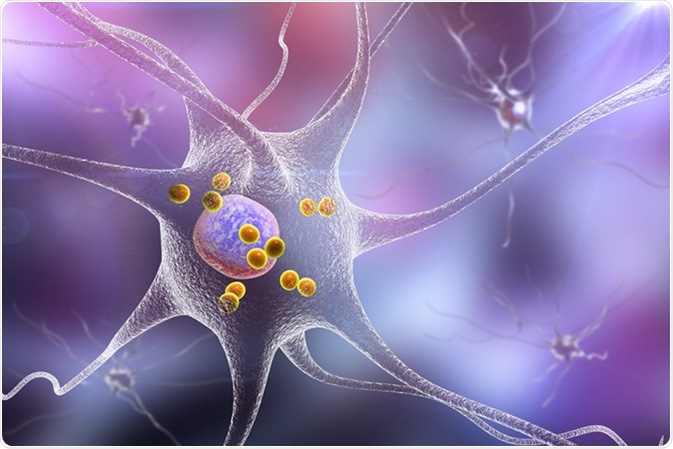Parkinson’s disease is a motor illness that progresses gradually. It affects the dopamine-producing neurons responsible for body movements. Dementia with Lewy bodies (DLB), on the other hand, is a disease that leads to a progressive decline in mental abilities. Some may mistake the symptoms of DLB with Parkinson’s because of the common symptoms of muscle rigidity and slow movements.
Parkinson’s Disease in a Nutshell
Parkinson’s disease is a neurodegenerative disease affecting about 1 to 2 percent of people over the age of 60 years. Worldwide, an estimated 10 million people have been diagnosed with Parkinson’s disease. In the United States, 60,000 people are being diagnosed every year and at present, about one million people are living with the condition.
In Parkinson’s disease, the dopamine-producing nerves of the brain gradually die. When dopamine levels decrease, the symptoms of Parkinson’s disease develop, and movement is impaired.
Though the exact cause of PD is unclear, some risk factors have been identified. For instance, genetics play a role, as do certain environmental triggers such as the exposure to toxins.
Dementia with Lewy Bodies (DLB) Overview
In some cases, however, brain changes may lead to the development of movement symptoms. Lewy bodies are clumps of abnormal deposits in the brain of a protein called alpha-synuclein. Accumulation of these deposits leads to problems with movement, thinking, mood, and behavior.
Dementia with Lewy bodies (DLB) is a progressive type of dementia that involves the formation of Lewy bodies in the nerve cells. DLB is the third most common cause of dementia, after Alzheimer’s disease and vascular dementia. About 10 to 25 percent of all cases of dementia are due to DLB.

3D illustration showing neurons containing Lewy bodies small red spheres which are deposits of proteins accumulated in brain cells that cause their progressive degeneration. Image Credit: Kateryna Kon / Shutterstock
About 1.3 million Americans are living with DLB. However, there is limited information about incidence, as it is thought to be severely underdiagnosed. Some cases are misdiagnosed as other types of dementia or even Parkinson’s disease.
In DLB, patients may have signs and symptoms of impaired thinking, memory loss, inability to understand visual information, changes in reasoning, or fluctuations in cognition and attention. Also, patients may have difficulty with movement (including walking), tremors, slowness, and muscle stiffness. Some patients may have trouble sleeping, visual hallucinations, delusions, and balance problems.
Overview of Dementia with Lewy Bodies (DLB)
Difference Between Parkinson’s Disease and Dementia with Lewy Bodies (DLB)
Parkinson’s disease involves problems with movement. Although DLB is characterized by movement issues, it is often accompanied by other symptoms.
Similarities
Parkinson’s disease and DLB may both involve show evidence of Lewy bodies in neurons in the brain. Lewy bodies are groups of proteins called alpha-synuclein, a naturally occurring protein in the brain, that is associated with various brain changes at high levels.
The exact reason for the large protein buildup is unknown. However, the more clumps of Lewy bodies develop, the increased the risk of nerve cell damage and death. Lewy bodies are also seen in Parkinson’s disease.
Differences
Though both disorders may involve the presence of Lewy bodies, some patients with Parkinson’s disease may only experience a mild cognitive decline. Most patients with PD only experience problems with mobility. However, there are cases in which patients with PD develop cognitive decline and dementia as a complication of the disease.
When dementia occurs after a diagnosis of a motor disorder, it’s dubbed as Parkinson’s disease with dementia (PDD). In contrast, if the cognitive decline and memory loss occur before or at the same time as the development of a motor disorder, it’s called DLB.
PDD and DLB are sometimes referred to collectively as Lewy body dementias. There is no cure for either disease, but treatments aim to slow disease progression.
Further Reading
Last Updated: Sep 5, 2022